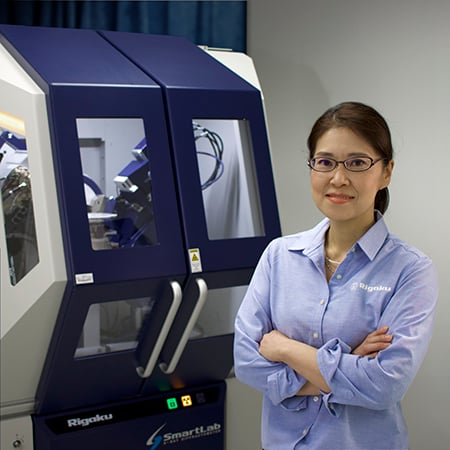Do you know how to set up and optimize your XRD experiments; Which X-ray source, optics, detectors, and sample stages to use, to maximize the quality of the data and gain accurate insights fast?
Modern XRD instrument supports multiple configurations, e.g. Bragg-Brentano, parallel beam, focusing beam, different X-ray sources, 1-D or 2-D detectors, and a wide variety of sample holders. It is not easy to figure out the best configuration for each analysis need.
For example, most X-ray diffractometer is equipped with an X-ray source with a copper anode, which is not the best for lithium-ion battery (LIB) materials including 3D transition metals, such as manage iron, cobalt, or nickel. The anode needs to be optimized for your sample. Operando measurements often require fast scans to observe phase transformation. This requires optimizing the source, the geometry, and the detector to be optimized for the maximum speed.
In the webinar, you will learn the best practices and how to configure your XRD for each application and analysis need.

Contact Us
Whether you're interested in getting a quote, want a demo, need technical support, or simply have a question, we're here to help.

Subscribe to the Bridge newsletter
Stay up to date with materials analysis news and upcoming conferences, webinars and podcasts, as well as learning new analytical techniques and applications.



.jpg?width=300&height=300&name=Tim%20Bradow%20(1).jpg)
